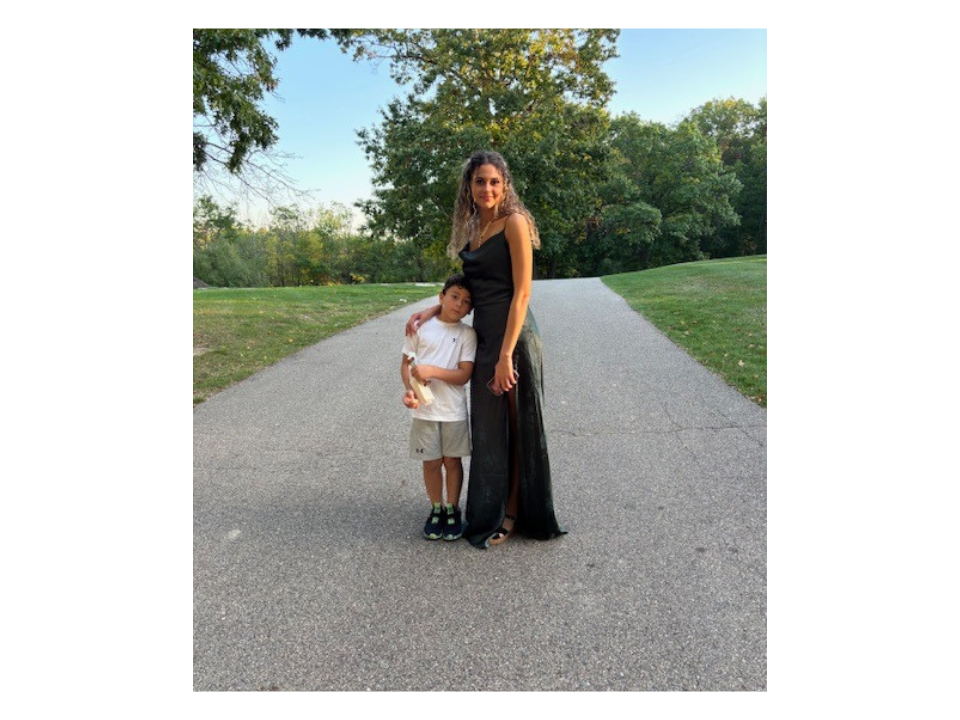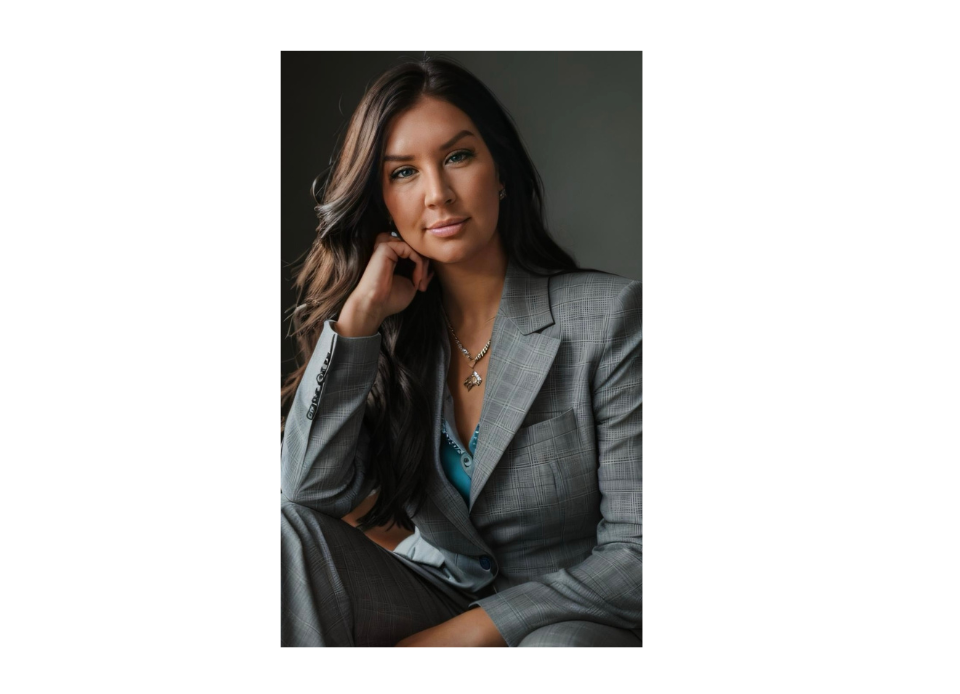Healthcare is an ever-evolving field that requires dedication, passion, and a commitment to lifelong learning. For those who aspire to make an impact in healthcare education, hearing from professionals who have walked the path can be incredibly inspiring. In this interview, we sit down with Stacey, a seasoned registered medical assistant with 20 years of experience, who now serves as a campus director at Ross. Stacey shares her personal journey, insights on student success, and what it truly means to lead with care and accountability. Her story illustrates how experience, empathy, and a willingness to take risks can shape a career that positively impacts both students and the broader community.
Here is her story:
Tell me a little bit about yourself.
I’ve been in the healthcare field for 20 years as a registered medical assistant. While I’m not a Ross graduate, I returned to teaching in 2023 as an evening clinical instructor, and recently I stepped into this director role. I thought this would be a great opportunity to help improve the campus environment and make a positive impact on students’ experiences. Personally, I grew up here in Michigan, and I have three children: two teenagers and a six-year-old. Being a native here has really shaped how I view community and relationships. Outside of work, I enjoy exercising, being outdoors, and soaking up as much sunshine as possible, which is limited here in Michigan! I love any activity that gets me moving and spending time outside.


What brought you to Ross? What is your role? Was healthcare always your intended path, or did the field find you?
I came to Ross because I wanted to teach future medical assistants. Over my 20 years in the field, I’ve seen the evolution of healthcare, from areas of excellence to areas with room for improvement, and I felt that my experience could really help students succeed. When you step out of the field for a while, you can lose track of updates and trends, and being back allows me to bring current, practical knowledge to the classroom.
Healthcare wasn’t my original plan. I was 18 and unsure of what I wanted to do with my life. I knew I had to pick a path, and healthcare gradually became my calling. Over time, I realized that this field was not just a career but a way to make a real difference in people’s lives, whether through direct patient care or through training the next generation of professionals.
How would you describe your time at Ross so far? Do you have any memorable moments?
My time at Ross has been wonderful so far. Some of my most memorable moments involve students expressing appreciation in small ways, like saying, “Miss Stacey, it’s nice to know someone cares.” These gestures remind me that even small interactions, checking in on grades, offering guidance, or listening to someone who’s struggling, can have a big impact.
I also love greeting students as they come in and noticing when something is off. Just asking, “Hey, what’s going on today?” or being available to talk shows students that we care about them as people, not just as learners. Even simple acts, like following up when a student misses class, create trust and accountability.
Were there any mentors, colleagues, or role models who influenced your journey?
Yes, absolutely. Jodie trained me early in my career, and her mentorship was invaluable. She taught me that being in healthcare, and now in education, is not just about skills, but also about empathy, accountability, and relationships. Her guidance helped me understand how to balance professionalism with genuine care for students and colleagues alike.
What are some of the most valuable lessons you’ve learned in your career so far?
One of the most important lessons is to never stop learning. Healthcare is constantly evolving, and it’s essential to stay up to date and remain teachable. Always take that extra time with patients, and trust your instincts, if your gut tells you something is off, it probably is.
I’ve also learned to pay attention to the different ways people present themselves. Not everyone will ask for help, so you need to have awareness and be proactive. Another big lesson is learning from students. They often teach me new ways of thinking, whether it’s creative ways to memorize information or different approaches to solving problems. Having an open mind is critical in both healthcare and education.
What advice would you offer to students who want to follow a similar career path?
Positivity is key. Always remain optimistic, even when you face challenges like a bad test or a missed class. Don’t be afraid to communicate with your instructors and directors. There are people who want to help, and there are always solutions, even if you don’t see them at first.
Another important piece of advice is not trying to take on the world alone. Collaboration, seeking guidance, and understanding that there’s a network of support can make a huge difference in your success.
What accomplishments or milestones are you most proud of?
Stepping into this director role has been one of the most significant milestones in my life. I’ve often been told I was too direct or abrasive to be a leader, and past evaluations didn’t always reflect leadership potential. But Ross took a chance on me, and the past eight weeks have been incredibly fulfilling. It’s been a great opportunity to show that leadership comes in many forms, and that directness combined with empathy can be incredibly effective.
What strategies or habits have helped you maintain strong campus performance?
Awareness and relationships are key. I’ve been teaching at this campus for nearly two years, so I understand our student population and their needs. Transparency is essential, I always provide honest feedback, even if it’s not what someone wants to hear. I also like to turn challenges into opportunities. For example, if something doesn’t go as planned, we analyze it, figure out what went wrong, and come up with a new strategy.
Being a self-starter and taking initiative also helps. I don’t rely on others for every detail; I like to find solutions and gather information proactively. This approach keeps things moving efficiently and sets a positive example for both students and staff.
How do you stay motivated and keep your team inspired?
Student success motivates me the most. Seeing students achieve their goals – passing exams, graduating, or even returning as classroom aids – is incredibly rewarding. I also encourage students to stay connected and give back, which reinforces a cycle of motivation and inspiration for everyone involved.
How do you build a positive culture and sense of community on campus?
Communication and accountability are essential. Students need to reach out when they can’t attend – not just for school logistics, but so we can ensure they’re okay personally. Encouraging students to understand the “why” behind assignments helps them retain knowledge and take ownership of their learning. Supporting students while holding them accountable fosters trust, community, and a strong learning environment.
What goals do you have for your campus or your professional growth in the next year?
I want to increase student enrollment and retention while continuing to create a safe, welcoming environment. Professionally, I aim to further develop my leadership skills and continue positively impacting staff and students alike. Ultimately, I hope to build a campus culture where people feel supported, challenged, and inspired to do their best.
What’s one thing you wish more people knew about working in education or healthcare training?
It’s challenging. There’s a lot of behind-the-scenes logistics that people often don’t see. One of the hardest things is getting students to trust you, even when you ask tough things. Sometimes it’s about applying a little “tough love” to help students grow, even if it’s not easy in the moment.
Share a random fun fact about you!
I’m an only child! It’s not something you see a lot these days. Growing up with just me and my parents taught me independence and self-reliance, which I think has shaped the way I approach relationships, work, and leadership.
Beyond academics, Stacey is passionate about community engagement. She is always exploring ways to provide support for underserved students, including small pantries for essentials like scrubs, diapers, and holiday gifts. These initiatives demonstrate her commitment to students’ holistic well-being, showing that healthcare education leaders can have a profound impact both inside and outside the classroom.
Stacey’s journey from a 20-year career in medical assisting to leading a campus at Ross illustrates the power of dedication, continuous learning, and meaningful mentorship. Her story highlights the importance of empathy, communication, and accountability in shaping student success and fostering a positive campus culture. For anyone pursuing a career in healthcare education, Stacey’s insights and story offers invaluable guidance on navigating challenges, inspiring students, and embracing leadership with authenticity and purpose.
